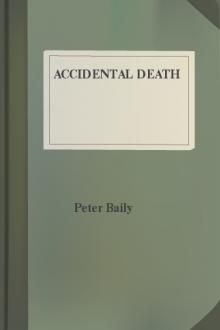Eco: Foucalt's Pendulum eco foucault (highly illogical behavior txt) 📖

- Author: eco foucault
Book online «Eco: Foucalt's Pendulum eco foucault (highly illogical behavior txt) 📖». Author eco foucault
"It suddenly occurred tome that the dragoons might have found something down there. I hadrecently read a book about the secret of Rennes-le-Chateau, anotherstory in which the Templars figure. A penniless and obscure parishpriest was restoring an old church in a little village of some twohundred souls. A stone in the choir floor was lifted, revealing abox said to contain some very old manuscripts. Only manuscripts? Wedon't know exactly what happened next, but in later years thepriest became immensely rich, threw money around, led a life ofdissipation, and was finally brought before an ecclesiasticalcourt. What if something similar had happened to one of thedragoons? Or to both? Ingolf went down first; let's say he foundsome precious object small enough to be hidden in his tunic. Hecame back up and said nothing to his companions. Well, I am astubborn man; otherwise I wouldn't have lived the life Ihave."
The colonel ran hisfingers over his scar, then raised his hands to his temples andbrushed his hair toward his nape, making sure it was inplace.
"I went to the centraltelephone office in Paris and checked the directories of the entirecountry, looking for a family named Ingolf. I found only one, inAuxerre, and wrote a letter introducing myself as an amateurarcheologist. Two weeks later I received a reply from an elderlymidwife, the daughter of the Ingolf I had read about. She wascurious to know why I was interested in him. In fact, she asked:For God's sake, could I tell her anything? I realized there was amystery here, so I hurried to Auxerre. Mademoiselle Ingolf lives ina little ivy-covered cottage, its wooden gate held shut by a stringlooped around a nail. An old maid¡Xtidy, kind, and uneducated. Sheasked me right away what I knew about her father, and I told her Iknew only that one day he had gone down into a tunnel in Provins. Isaid I was writing a historical monograph on the region. She wasdumbfounded; she had no idea her father had ever been to Provins.Yes, he had been a dragoon, but he resigned from the service in1895, before she was born. He bought this cottage in Auxerre, andin 1898 he married a local girl with some money of her own.Mademoiselle Ingolf was five when her mother died, in 1915. Herfather disappeared in 1935. Literally disappeared. He left forParis, which he regularly visited at least twice a year, but wasnever heard from again. The local gendarmerie telephoned Paris: theman had vanished into thin air. Presumed dead. And so ourmademoiselle, left alone with only a meager inheritance, had to goto work. Apparently she never found a husband, and judging by theway she sighed, thereby also hangs a tale¡Xprobably the only talein her life, and it must have ended badly. ¡¥Monsieur Ardenti,' shesaid, ¡¥I suffer constant anguish and remorse, having learnednothing of poor Papa's fate, not even the site of his grave, ifindeed there is one.' She was eager to talk about him, describinghim as very gentle and calm, a methodical, cultured man who spenthis days reading and writing in a little attic study. He putteredin the garden now and then, and exchanged a few words with thepharmacist¡Xalso dead now. From time to time he traveled toParis¡Xon business, he said¡Xand always came home with packages ofbooks. The study was still full of them; she wahted to show them tome. We went upstairs.
"It was a clean and tidylittle room, which Mademoiselle Ingolf dusted once a week: shecould take flowers to her mother's grave, but all she could do forpoor Papa was this. She kept it just as he left it; she wished shehad gone to school so she could read those books of his, but theywere in languages like Old French, Latin, German, and even Russian.Papa had been born and spent his childhood in Russia; his fatherhad been a French Embassy official. There were about a hundredvolumes in the library, most of them¡XI was delighted to see¡Xonthe trial of the Templars. For example, he had Raynouard'sMonuments historiques relatifs a la condamnation des chevaliers duTemple, published in 1813, a great rarity. There were many volumeson secret writing systems, a whole collection on cryptography, andsome works on paleography and diplomatic history. As I was leafingthrough an old account ledger, I found an annotation that made mestart: it concerned the sale of a case, with no further descriptionand no mention of the buyer's name. Nor was any price given, butthe date was 1895, and the entries immediately below were quitemeticulous. This was the ledger of a judicious gentleman shrewdlymanaging his nest egg. There were some notes on the purchase ofitems from antiquarian booksellers in Paris. I was beginning tounderstand.
"In the crypt inProvins, Ingolf must have found a gold case studded with preciousstones. Without a moment's thought, he slipped it into his tunicand went back up, not saying a word to the others. At home, hefound a parchment in the case. That much seems obvious. He went toParis and contacted a collector of antiques¡Xprobably somebloodsucking pawnbroker¡Xbut the sale of the case, even so, leftIngolf comfortably off, if not rich. Then he went further, left theservice, retired to the country, and started buying books andstudying the parchment. Perhaps he was something of a treasurehunter to start with; otherwise he wouldn't have been exploringtunnels in Provins. He was probably educated enough to believe thathe would eventually be able to decipher the parchment on his own.So he worked calmly, unruffled, for more than thirty years, a truemonomaniac. Did he ever tell anyone about his discoveries? Whoknows? One way or another, by 1935 he must have felt either that hehad made considerable progress or that he had come to a dead end,because he then apparently decided to turn to someone, either totell that person what he knew or to find out what he needed toknow. And





Comments (0)